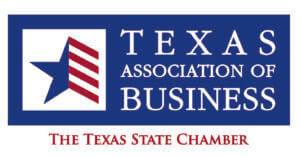The Impact of Federal Overreach on Texas’ Business Environment
Last week, I had the privilege of testifying on behalf of the Texas Association of Business (TAB) before the Texas Senate Natural Resources & Economic Development Committee on the growing issue of federal interference and the risk it poses to our state’s economy. Recent federal restrictions on LNG exports, along with other stringent regulatory measures, have cast a shadow over Texas’s economic prospects and raised significant concerns within our business community.
Watch the full video of the Committee hearing here:

TAB Vice President of Policy, Gabriela Perdichizzi testifies before the Senate Committee on Natural Resources and Economic Development on Thursday, June 13, 2024.
To understand the lasting impact of increased federal regulations, it’s crucial to recognize the interconnectedness of these policies with Texas’ broader economic landscape. The U.S. is a global leader in energy production, with Texas consistently ranking as the top state for liquefied natural gas (LNG) exports. Our LNG sector not only generates substantial revenue and job creation within our state, but also plays a pivotal role in maintaining national energy security.
The Biden administration’s ‘pause’ on LNG exports, as our President & CEO Glenn Hamer recently pointed out, is “nothing less than a direct hit to the Texas economy, and undermines Texas’ energy leadership supported by our ‘all-of-the-above’ approach.” With numerous projects in the pipeline, any uncertainty in future export opportunities has enormous trickle-down effects for economies across Texas, hampering our state’s ability to sustain our robust economic growth.
Moreover, supply chain disruptions exacerbated by federal regulations have further hampered the competitiveness of Texas businesses engaged in North American trade. As a result, Texas is disproportionately affected, as we are at the center of North American trade due to our proximity to our nation’s largest trade partner, Mexico. These limitations lead to increased costs and reduced competitiveness across the board. We were pleased to see common-sense, bipartisan legislation that streamlines the Presidential permitting process for new and expanded bridges across the Rio Grande, ensuring we can strengthen the arteries of trade and keep Texas as the centerpiece of the North American economy under the U.S.-Mexico-Canada Agreement (USMCA). We must continue advocating for policies that make trade with Mexico more efficient, particularly since more than 80% of all goods from Mexico into the U.S. travel by rail or truck across the Texas border.
Stringent federal air emission regulations also impose significant operational costs on Texas businesses, stifling corporate expansions and deterring new investments essential for sustained economic growth. The exorbitant compliance costs associated with increased regulations disproportionately affect smaller enterprises. This financial strain inhibits business’ ability to reinvest in operational infrastructure, research, and workforce development, hindering their long-term sustainability and growth potential, and ultimately deterring entrepreneurship in the Lone Star State. Texas should advocate for regulatory flexibility and foster innovation in emission reduction strategies, enabling businesses to adapt without compromising economic growth.
At TAB, we champion balanced policies that ensure regulatory certainty while promoting economic growth. It’s crucial that we foster innovation and maintain a regulatory environment that supports businesses, enabling them to thrive and contribute to our state’s economic prosperity. Navigating the challenges posed by increased federal interference requires a strategic approach. TAB remains steadfast in advocating for business-friendly policies that protect Texas’ long-term economic interests and support continued growth across all industries.
– Gabriela Perdichizzi, TAB Vice President of Policy
